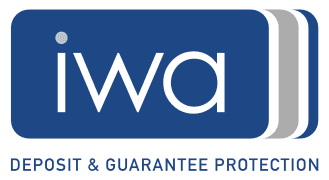Save up to 70% on energy costs with commercial solar
Install commercial solar with Infinite Energy.
Increase your bottom line
Gain energy security and stability
Meet ESG goals and align with clients
Add value to your commercial property
How much money can your business save?
Our forecasts are for informational purposes only and based on typical energy cost forecasts and solar production metrics. Actual savings and breakeven points will vary. We cannot guarantee the accuracy of these projections as energy prices can change. This information is not financial advice. However, we will always do our best to provide reliable forecasts and always side on the more conservative side. Based on an inflation rate of 3.9% and an electricity tariff of £0.48/kWh, expected savings are in line with MCS best practices.
Your clients want a partner aligned to their ESG goals
Why choose Infinite Energy?
Honest and authentic approach
We put your business goals first and take pride in delivering genuine value.
Outstanding service and loyal clients
Proven by our glowing reviews and testimonials from businesses like yours.
Expert guidance every step of the way
We'll help you understand how solar can benefit your business without any pressure or commitment.
No-commitment assessments and proposals
Free, comprehensive consultations with no high-pressure sales tactics or hidden fees.
Protect your business against energy price volatility by reducing grid reliance
Source: Office for National Statistics and YCharts.com
In recent years, the UK energy market has been anything but predictable. As shown by the sharp spikes and fluctuations in electricity prices over the past two decades, businesses have faced unprecedented uncertainty and rising costs. The 12-month rolling percentage change in electricity prices shows dramatic volatility, with significant peaks and troughs driven by global events, supply chain disruptions, geopolitical tensions, and evolving market conditions.
This volatility isn't just a financial headache—it’s a risk that can seriously undermine your business's stability and profitability. If you’re heavily reliant on grid-supplied electricity, you're probably feeling the impact of these market fluctuations on your bottom line. But there's a way to regain control over your energy costs: Commercial Solar Power.
Switching to solar can help stabilise your energy costs and future-proof your business. By generating your own electricity, you reduce your reliance on the unpredictable grid, shielding yourself from sudden price surges and long-term increases. Solar power lets you lock in a consistent, reliable source of energy, so you can manage costs more effectively and plan with confidence, even in a market that’s constantly changing.
You can reduce your grid reliance by up to 70% depending on your business's energy use patterns and the size of the system you install.
On top of that, going solar helps you stay ahead of the game as the UK shifts towards renewables. It keeps you in step with future regulations and shields you from potential carbon taxes, all while showing your commitment to sustainability. Not only does this make your business more resilient, but it also boosts your appeal to customers and partners who care about the planet.
Now’s the perfect time to explore how commercial solar power can help protect your business from the uncertainty of energy markets. With government incentives, lower technology costs, and a chance to cut your operational expenses, investing in solar is a smart move towards a stable and sustainable future.
Commercial solar success stories
Read about recent commercial solar installations by clicking any of the case studies below.
Commercial landlord? EPC regulations are changing
SOLAR INSTALLATION
Frequently asked questions
JARGON BUSTER
Commercial solar glossary
Building-Integrated Photovoltaics (BIPV)
Solar panels integrated into building materials, such as roof tiles or facades, to generate electricity while serving a structural function.
Energy Performance Certificate (EPC)
A certificate required in the UK that rates the energy efficiency of a building, which can be improved with solar installations.
Feed-in Tariff (FiT)
The Feed-in Tariffs (FIT) scheme was designed by government to promote the uptake of renewable and low-carbon electricity generation. It is now closed for new applicants, since 2019.
Grid-Connected System
A solar power setup that is connected to the local electricity grid, allowing excess electricity to be exported and shortages to be supplemented by the grid.
Inverter
A device that converts the direct current (DC) electricity generated by solar panels into alternating current (AC) suitable for use in homes and businesses.
Microgeneration Certification Scheme (MCS)
A UK quality assurance scheme that certifies microgeneration technologies and installers, ensuring standards in the solar industry.












































